Update time:2025-10-29Visits:2998

Ding Jianqing, Second-Level Professor, Researcher, Executive Director of the Institute of Aging and Tissue Repair, Renji Hospital, Shanghai Jiao Tong University
Introduction
A pioneer in scientific research, his career has spanned multiple disciplines, from immunology and neuroscience to the frontiers of gerontology. His work connects the past, present, and future of medical science.
He takes a broad view of the scientific ecosystem, focusing not only on microscopic details in the lab but also on translating research outcomes into tangible societal benefits.
He understands that scientific progress is not the work of isolated individuals but relies on cross-cultural, interdisciplinary collaboration. This belief guided his research in the United States and his later contributions to research management in China. He champions a fusion of global perspectives, integrating international expertise to advance China’s medical research.
As populations age globally, addressing age-related diseases has become a critical challenge. He aims to unravel the mechanisms of aging through systematic research, identifying key pathways for early intervention and treatment.
He firmly believes the ultimate purpose of science is to improve human well-being, and gerontology is an indispensable part of this mission. With both passion and resolve, he will continue to lead his team, fostering interdisciplinary integration.
The Path to Medicine
Ding Jianqing grew up in the Shanghai of the 1970s, a time of food ration coupons and bustling alleyways lined with plane trees. In the city’s traditional Shikumen houses, life for multi-generational families was a blend of lively daily routines and the quiet scarcity of the era.
He was raised in an intellectual family. His parents were top graduates of the Mechanical Engineering department at Shanghai Jiao Tong University, and his grandfather, Professor Ding Zuyin, was a renowned scholar in child psychology whose book, Child Psychology, remains influential. This environment instilled in Ding a deep respect for knowledge from an early age, though his educational path was not straightforward.
In the 1980s, career choices were often heavily influenced by family. Initially drawn to mechanical engineering like his parents, Ding imagined a future building and creating. His father, however, had other plans. “Study medicine,” he advised. “It’s a good, stable profession.” In that era, medicine was seen not just as a stable job but as a safeguard for the family’s future, a view deeply rooted in many intellectual families. When Ding considered psychology, his grandfather objected, believing the field was too ideological and easily misunderstood.
Under strong family persuasion, Ding enrolled at Shanghai Second Medical University.
Life in medical school was a world of dense anatomical charts, physiology, and chemical equations—seemingly far from his original dream. “To be honest, initially I had no strong feelings about medicine,” Ding recalls. “But gradually, I discovered its own charm, especially the logic and rigor of basic medicine, which shares similarities with mechanics. Slowly, I began to fall in love with it.”
He transformed from a reluctant student into a scholar passionate about basic medicine. For students of his generation, being invited to join the university faculty was a prestigious honor, and Ding aspired to a career in basic research. Though his path had twists, he realized that, like mechanics, medicine demanded rigorous logic and meticulous thinking. He had found his calling.
His focus gradually narrowed to microbiology and immunology, a field with a rich history at the university, established by the pioneering Professor Yu Yi. Yu was China’s first doctoral recipient in bacteriology, a prolific author of foundational texts, and the developer of the nation’s first anti-typhoid serum and measles vaccine.
“Our mentor, Professor Lu Deyuan, was a student of Professor Yu Yi,” Ding notes. “In those days, mentors took greater pride in teaching.” As Lu’s student, Ding was immersed in this rigorous academic tradition.
“Immunology and microbiology were taught together back then. I was particularly interested in immunology, feeling that this field held endless possibilities.”
In this environment, Ding solidified his path in immunology. After graduation, he remained at the university, taking on greater teaching and research responsibilities.
Pursuing Knowledge Abroad
In 1990s China, medical schools prioritized teaching over research, though the academic climate was slowly changing. As a young associate professor leading a research team, Ding Jianqing felt his research methodologies were not yet fully developed. He sought advanced training to navigate the challenges of cutting-edge science.
“I was already an associate professor, leading a team in research, but I always felt my research capabilities weren’t solid enough.”
The idea of studying abroad took root, reinforced by a practical reason: his wife was already studying overseas.
“My wife was abroad at the time. I thought, since she was already there, why not take the opportunity to learn something new and broaden my horizons?”
Driven by these factors, Ding decided to go abroad to experience the research environment at top global institutions and seek breakthroughs in his field.
He first arrived at Harvard University. For Ding, stepping onto this historic campus was both an academic journey and a new enlightenment. Boston was then a global frontier in medical research, especially in immunology. Ding’s first mentor was a clinical immunologist.
“My supervisor was a clinician, more focused on immunology,” Ding recounted. “He was a very experienced teacher who loved sharing his stories. Though he brought me considerable pressure, I also gained a great deal from him.”
As Ding adapted to the new environment, he developed a strong interest in neuroscience.
“To be honest, I’ve always had a great interest in neuroscience. While immunology was also fascinating, I felt deep down that neuroscience might be the field I truly wanted to delve into.”
At that moment, his former mentor from Shanghai informed him of a postdoctoral opportunity in neuroscience at Stanford University. Ding saw this as his path forward and quickly headed to Stanford.
“I thought it was a great opportunity. Stanford is a leader in neuroscience research; studying there would undoubtedly be immensely beneficial.”
Stanford’s open and innovative research atmosphere deeply attracted Ding.
“Stanford’s environment was very different from Harvard’s,” Ding said with a smile. “Harvard was more traditional and rigorous, while Stanford was more open and vibrant, with academic ideas constantly colliding.”
There, he immersed himself in cutting-edge neuroscience, focusing on the cytoskeleton and intracellular trafficking, which became his primary research areas.
At Stanford, Ding’s research capabilities advanced rapidly. He published an important paper in the Journal of Cell Biology (JCB), but the process was fraught with pressure.
“I worried about experiments failing or that others might publish first. Every step forward came with immense pressure, but the sense of achievement upon success was incredibly strong.”
After four intense years, he published another significant paper. His experiences at both Harvard and Stanford shaped his scholarly approach, blending the logic of immunology with the complexity of neuroscience.
Beyond academics, Ding’s life experiences in America were equally formative. He gained valuable insights from American culture.
“In China, people often care deeply about ‘face’,” Ding reflected. “In America, the culture is different; people are more direct and straightforward. This candidness benefited me greatly in my later research and life.”
He also experienced the openness of American society. After receiving a ticket for cycling without a helmet, colleagues encouraged him to appeal in court, and the fine was significantly reduced. This experience, along with challenges like car theft and credit card fraud, taught him to navigate a new environment independently.
Today, Ding actively encourages his students to study abroad, believing that firsthand experience with cross-cultural challenges is essential for appreciating global diversity and the allure of top-tier academia.
Advancing Research at SJTU School of Medicine
Ding’s time in America taught him that a successful research institution relies on top-level design and institutional support, not just individual effort. The research experience and management insights he gained became the foundation for his work upon returning to Shanghai Jiao Tong University (SJTU) School of Medicine.
“Wherever I went, I hoped to make the place better. This mindset helped me in my work at SJTU after returning.”
Upon his return, Ding was appointed Deputy Director of the Neurology Research Institute at SJTU School of Medicine. He later took over the school’s research management. At the time, the school had ranked first nationally for six consecutive years in projects funded by the National Natural Science Foundation of China (NSFC). Maintaining this position was a significant responsibility.
“After returning, I was appointed Deputy Director… Later, I was transferred to the Research Management Office. The pressure was immense because the school had been first in NSFC project numbers for six years running. In my first year leading the office, we achieved a slight increase, with 535 projects total. At least we didn’t regress.”
In the following years, the number of NSFC projects at SJTU School of Medicine steadily rose, breaking the 600, 700, and 800 project milestones. Behind these numbers was the school’s precise grasp of research priorities and effective team motivation.
Under the leadership of Academician Chen Guoqiang and Secretary Jiang Fan, Ding’s team analyzed key research directions, deciding which areas warranted long-term investment.
“I’m especially grateful to Academician Chen Guoqiang, who brought in substantial resources and promoted the integration of basic science and engineering. This led to a qualitative leap in our research outcomes.”
During his tenure, Ding’s team not only increased the quantity of research projects but also secured landmark achievements. A high point came when 21 of the school’s 23 applications for NSFC key projects were approved. This success filled Ding with immense pride and elevated the school’s research profile.
In his six years managing research, Ding led the team to numerous breakthroughs and major awards. During this period, SJTU School of Medicine received 14 national-level awards for its medical research.
Ding’s management philosophy was shaped by his understanding of the research spirit. He emphasized that research requires enduring solitude and withstanding long-term tests.
“Research is both extremely painful and full of joy. It requires you to endure solitude; results often aren’t immediate, but once a breakthrough happens, the joy is immense. I always tell my team that research is a long-term process requiring patience and persistence.”
Starting in 2006, while excelling in research management, Ding also continued his personal research on neurodegenerative diseases. His work focused on the pathological mechanisms of Parkinson’s (PD) and Alzheimer’s (AD) diseases, funded by multiple NSFC projects.
“Our research in this area began in 2006 and continued until 2023. We completed four NSFC projects. One of my main studies explored the relationship between the DJ-1 protein and Parkinson’s disease. While it was known that DJ-1 was associated with Parkinson’s, the mechanisms were unclear. We clarified this connection, particularly for the over 90% of Parkinson’s cases that are sporadic.”
Beyond DJ-1, Ding’s team also studied the cytoskeleton and protein trafficking mechanisms in diseases like Alzheimer’s, exploring the relationship between nutrient transport and signaling in neuronal axons. They sought to identify key points for early detection and intervention.
“We are currently studying the cytoskeleton and intracellular protein trafficking, particularly the role of the Rab5 protein. Our team recently published a paper on Alzheimer’s disease. If we can detect these changes early, we might enable early intervention. Similar cytoskeletal issues exist in both Alzheimer’s and Parkinson’s, making this a universally important field.”
Ding’s passion for this research stems from his belief that systematic studies can reveal the essence of disease and benefit clinical applications. He also emphasizes interdisciplinary integration, convinced that cross-field perspectives drive scientific progress and expand the boundaries of knowledge.
A New Chapter at Renji—Exploration and Discovery in Geriatric Diseases
In 2023, Ding Jianqing joined Renji Hospital, affiliated with Shanghai Jiao Tong University School of Medicine, officially beginning his research journey into geriatric diseases. As society ages, challenges related to growing older, particularly neurodegenerative diseases like Parkinson’s and Alzheimer’s, have become more pressing. Early detection and intervention are crucial for improving patients’ quality of life. At Renji Hospital, Ding aims to combine his extensive experience in neuroscience and research management to explore new directions in aging-related research.
“After coming to Renji Hospital, Academician Xia Qiang expressed hope for further expansion into aging, particularly research related to geriatric diseases.”
An aging society presents many new medical challenges. Neurodegenerative diseases like Alzheimer’s and Parkinson’s are closely linked to aging. Ding hopes to build on existing research foundations, incorporate aging as a core factor, and find methods for early intervention—not just to extend life, but to enhance its quality for elderly patients.
In Ding’s view, aging is not a single physiological process but the result of complex, interacting mechanisms. Therefore, his vision for aging research is not limited to a specific organ or disease but approaches the mechanisms of geriatric diseases from a holistic, systems perspective. He pays special attention to the high incidence of neurodegenerative diseases in the elderly, believing their pathological mechanisms are closely related to cellular processes like the cytoskeleton and protein trafficking systems. These early cellular changes may provide critical clues for disease prevention.
Traditional medical models often focus on treatment after disease onset. However, for geriatric diseases—especially neurodegenerative ones—early prevention and intervention are more important. Through in-depth research on aging mechanisms, he hopes to identify biomarkers that help doctors detect early signs of disease, securing better treatment windows for patients.
“Our past medical model was more treatment-oriented. But I believe that for geriatric diseases, prevention is more critical. If we can find early biomarkers to help doctors intervene before symptoms appear, we can significantly improve patients’ quality of life. This is my primary goal—not just treating diseases, but preventing them.”
In his research on aging, Ding also focuses on the interaction between the nervous and immune systems. He believes that as people age, changes in the immune system increasingly affect the nervous system, especially in diseases like Parkinson’s and Alzheimer’s, where the immune system may play a crucial role. He envisions future research combining immunology and neuroscience to explore mechanisms of neuroinflammation during aging and potential therapeutic pathways.
Ding has always been interested in the intersection of the immune and nervous systems. He hopes to make breakthroughs in this area, particularly regarding neuroinflammatory mechanisms, to find better treatments. This is not only meaningful for geriatric disease research but also fundamental to understanding aging itself.
Ding’s vision for aging research focuses on cutting-edge scientific exploration while emphasizing practical clinical translation. He understands that the ultimate goal of research is to serve clinical practice and improve patient care. He firmly believes that combining research, clinical practice, and interdisciplinary approaches can yield tangible societal benefits from aging studies.
“As researchers, our ultimate goal is to apply scientific outcomes to clinical practice, truly benefiting patients. I hope that Renji Hospital’s future research in aging will not only result in published papers but, more importantly, lead to clinical trials that help elderly patients improve their lives.”
Advancing scientific research requires more and better-suited talent.
In his work, Ding values not only research outcomes but also cultivating the next generation of researchers. He believes that research is not just about obtaining data but about discovering underlying patterns—and maintaining passion throughout the process. He enjoys exchanging ideas with students and colleagues, sparking inspiration through collective wisdom, and helping students learn to think independently. In his management philosophy, developing students’ independent research capabilities is paramount.
“Research requires passion. Regardless of the source, passion drives progress. Additionally, having a ‘nose’ for research is crucial. Once, while at Harvard, I met a professor I greatly admired. He told me that a researcher needs a ‘nose’—the ability to keenly sense research directions and opportunities. Communication is also vital; it sparks new ideas. My philosophy is to teach people how to fish, not just give them fish.”
He believes an outstanding researcher needs not only excellent technical skills but also keen insight and an interdisciplinary vision. This holistic perspective has helped him lead his team to continuously scale new heights.
Ding always tells his students that cultivating a research mindset is essential. He hopes young people can, like him, view problems from multiple angles—especially seeking new breakthroughs at interdisciplinary intersections. Only then can a team truly drive disciplinary development and conduct meaningful research.
Looking ahead, Ding’s work will continue to center on early intervention and treatment for neurodegenerative diseases, constantly advancing research in this field. It is this dual experience in research and management that enables him to maintain a leading position across multiple fields.
“Essentially, our research must bring substantive changes to clinical practice. For example, our work on the cytoskeleton and neuronal signaling—if applied to early intervention—could truly bring hope to patients with Parkinson’s, Alzheimer’s, and other diseases. Our ultimate goal is always to improve human health.”
Reflecting on his decades in medicine, the once-hesitant young man has become a dedicated scholar. The campus scenery may be the same, but Ding Jianqing’s steps have grown firm where once they wavered. He is no longer the youth who passively accepted his fate, but a researcher shouldering the responsibility and mission to advance medicine.

Hospital: Renji Hospital, Shanghai Jiao Tong University School of Medicine
Dr. Wang Chuanqing | Building a ‘Shield’ for Children: A Guardian Against Pathogens
Dr. Zhou Tingyin | Opening the Door to a World of Microorganism
Dr. Liang Wei | Dedicated to Vascular Health, Safeguarding the Body’s Lifelines
Dr. Zou Shien | A Physician’s Mission in Gynecological World
Dr. Bao Shihua | Where Dreams Begin from Reproductive Immunology
Dr. Yang Zhigang | The Art of the Healer: Between the Brush and the Brain
Dr. Cai Junfeng | Guarding Bone and Joint Health, Improving Quality of Life
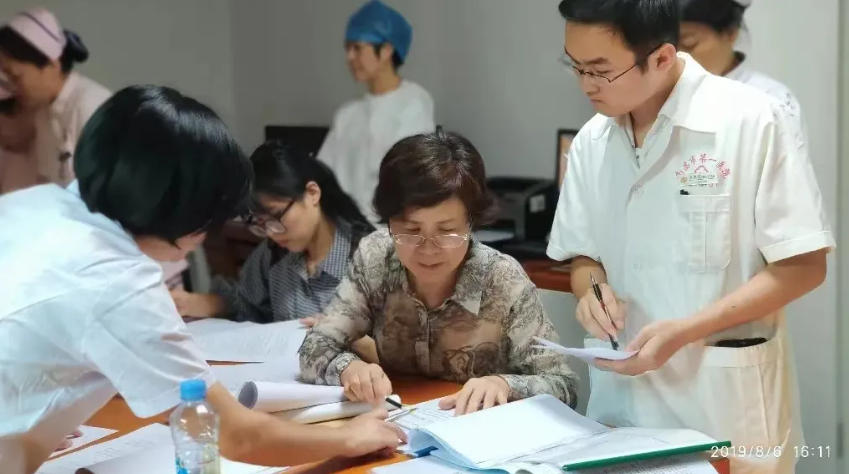
Dr. Wang Chuanqing | Building a ‘Shield’ for Children: A Guardian Against Pathogens
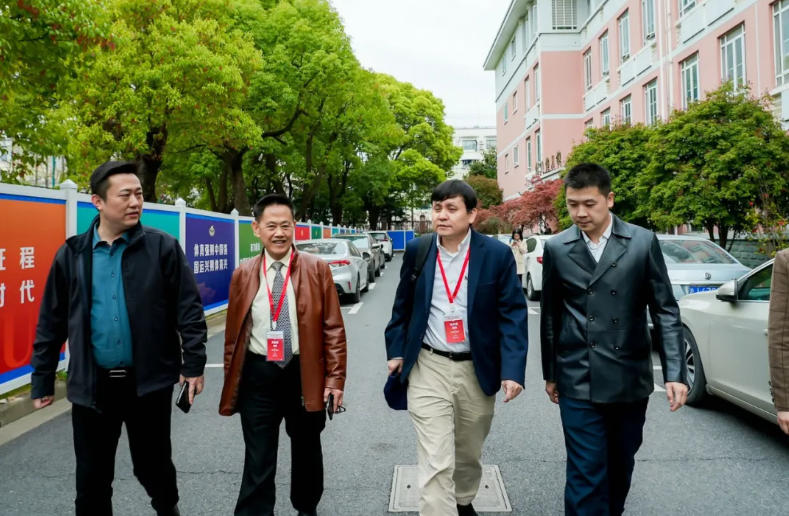
Dr. Zhou Tingyin | Opening the Door to a World of Microorganism
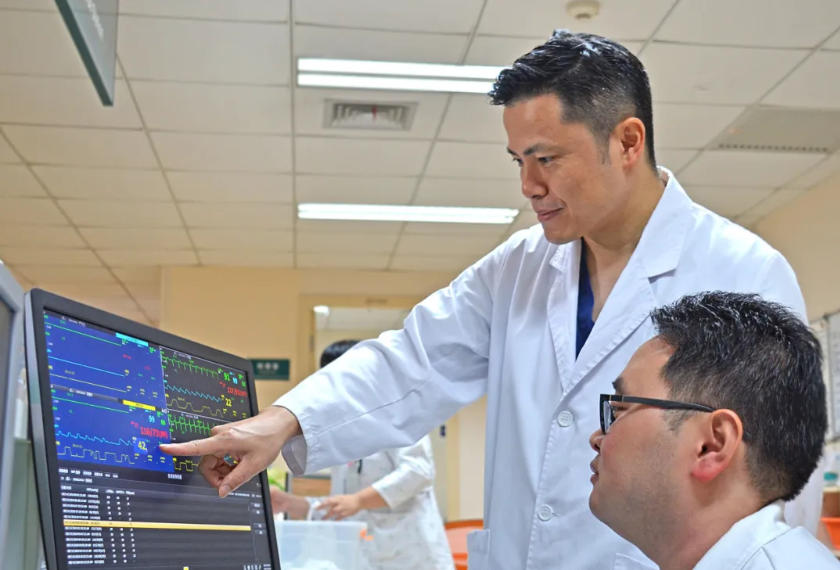
Dr. Liang Wei | Dedicated to Vascular Health, Safeguarding the Body’s Lifelines
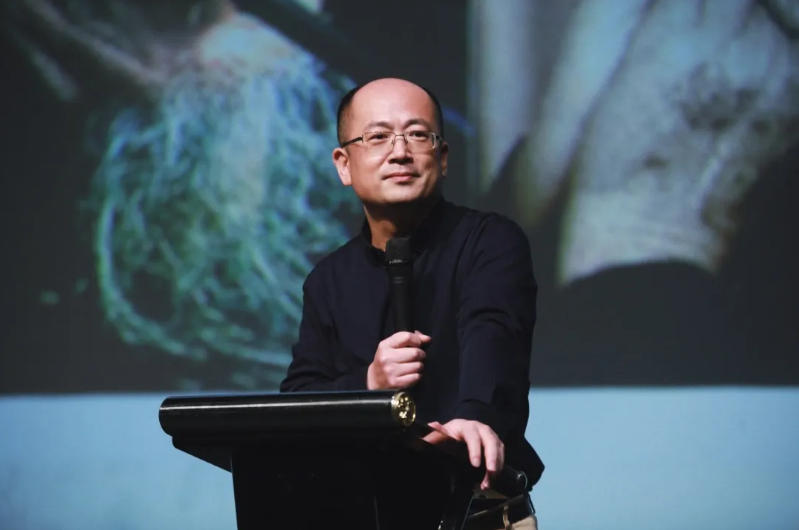
Dr. Zou Shien | A Physician’s Mission in Gynecological World
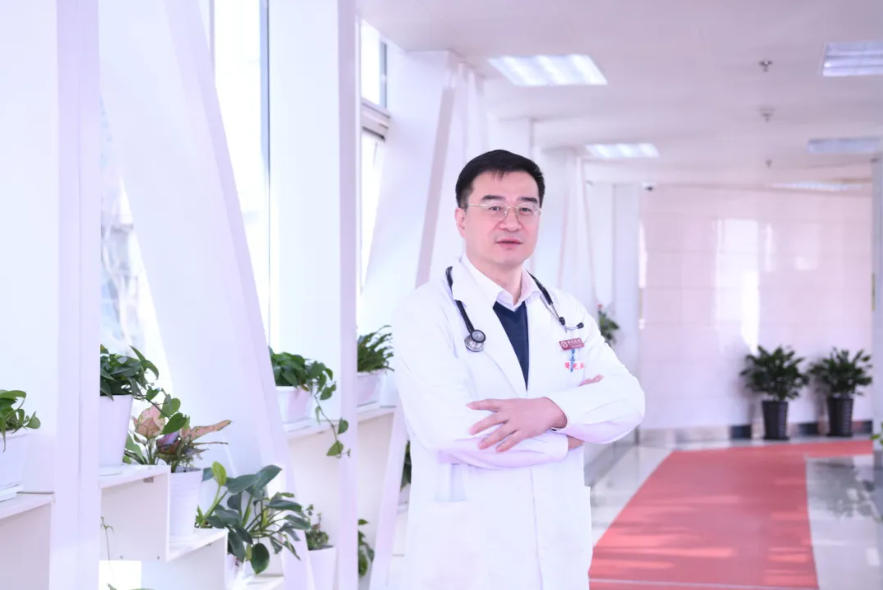
Dr. Cui Song | Healing the Heart, in Every Sense
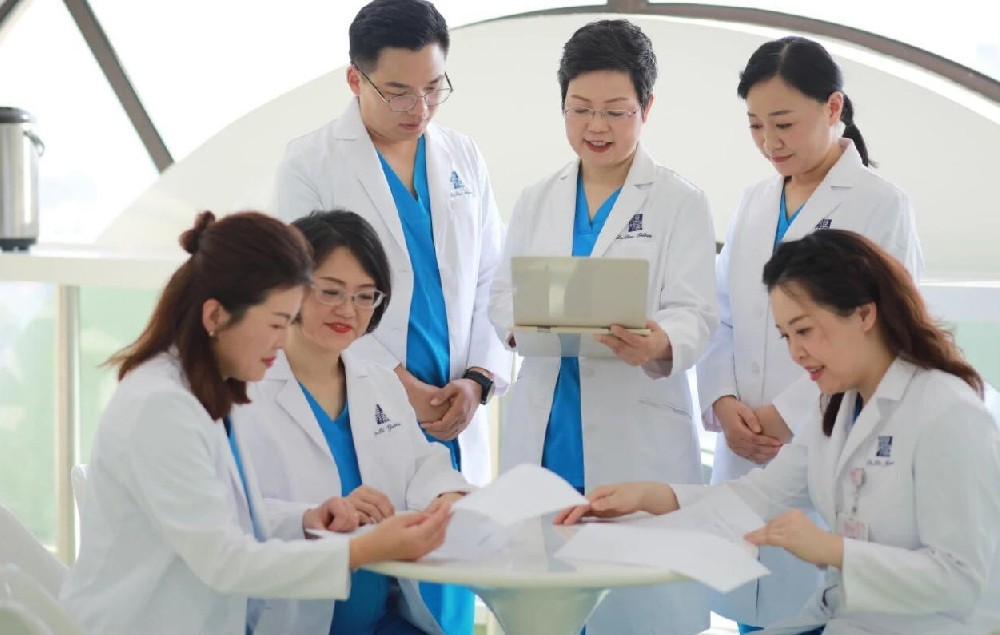
Dr. Bao Shihua | Where Dreams Begin from Reproductive Immunology
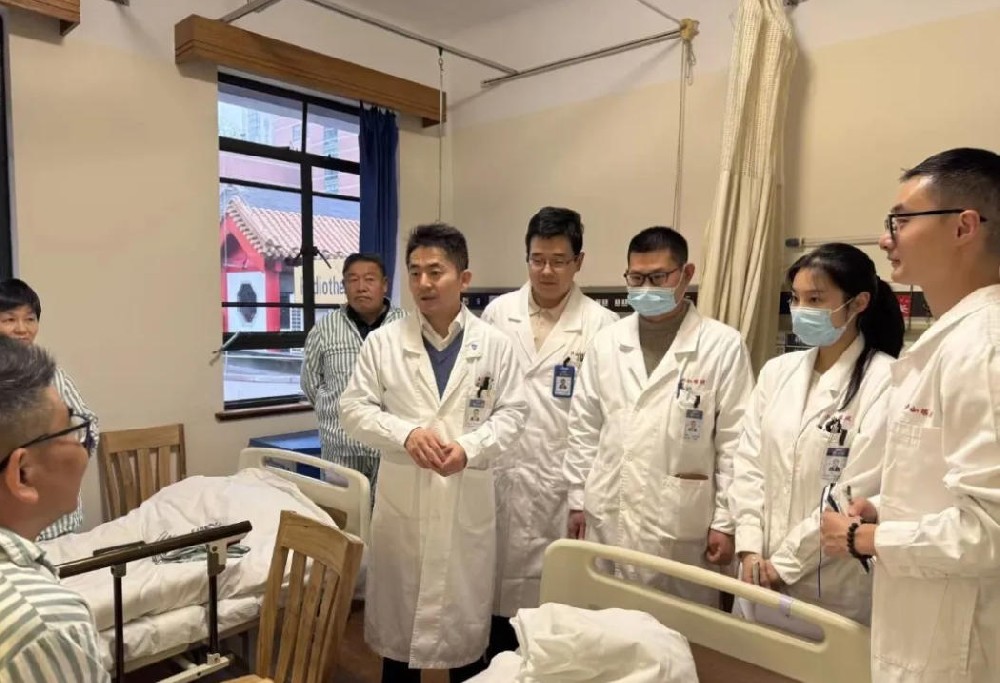
Dr. Yang Zhigang | The Art of the Healer: Between the Brush and the Brain
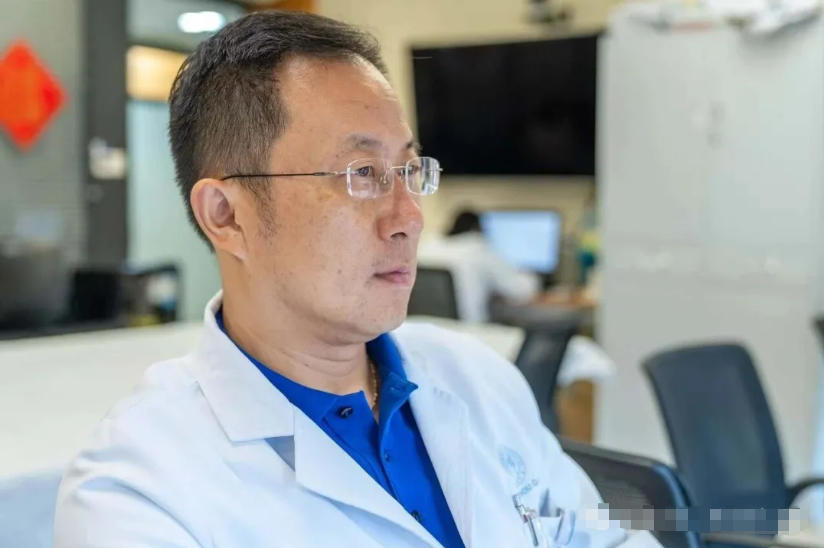
Dr. Zhou Qianjun | Sculpting Life in the Chest
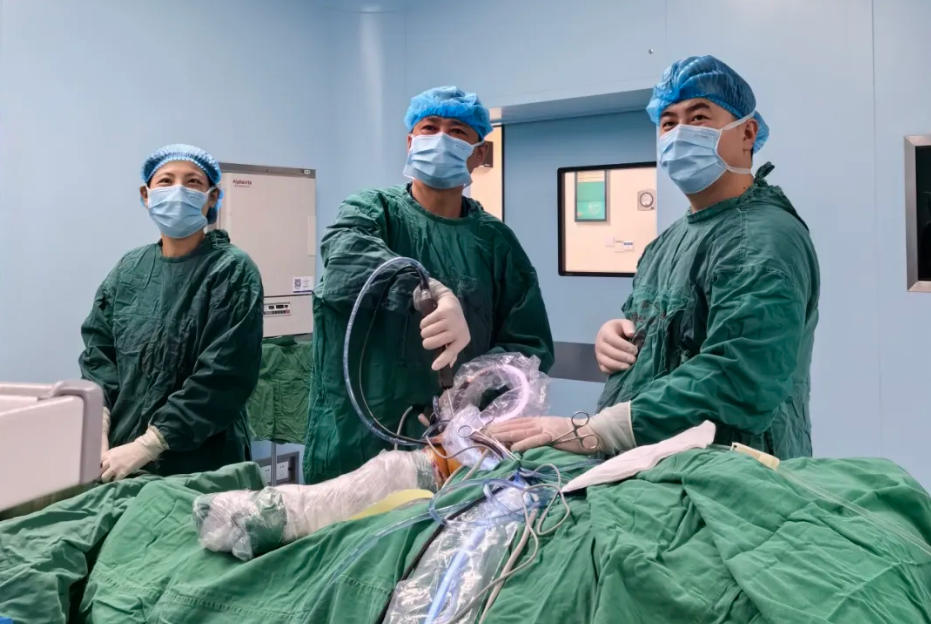
Dr. Cai Junfeng | Guarding Bone and Joint Health, Improving Quality of Life
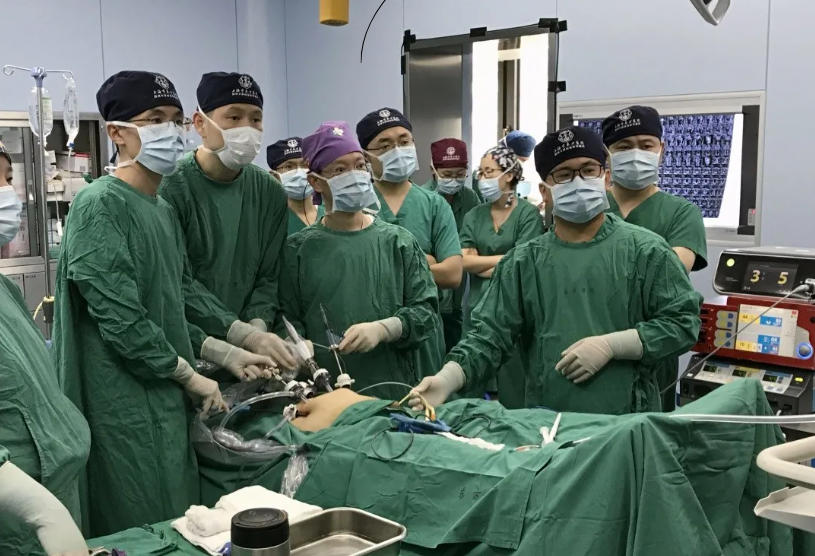
Dr. Cui Xingang | The Medical Dream of a Shanghai Urologist